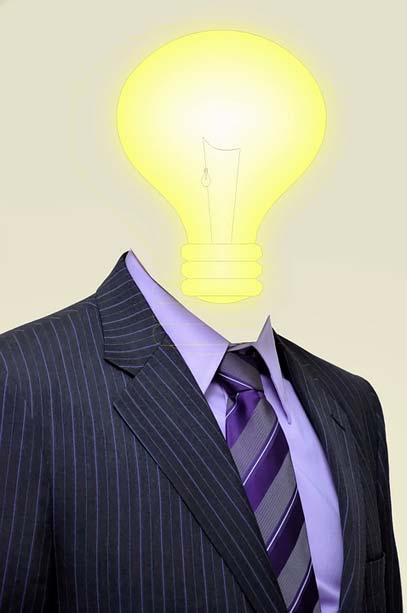
An electrifying lesson in human free will
We all know that two wrongs don't make a right. But does one right cancel out one wrong?
There's a good chance you believe that it does. Research suggests that our brains are wired to think of a good deed as a kind of get-out-of-jail-free card.
Psychologists call it licensing. It works like this:
You come home from a hard workout at the gym and immediately sit down to a double-helping of ice cream with chocolate syrup and whipped cream. The virtuous behavior of exercising makes you feel better about yourself, which then gives you license to indulge the less virtuous behavior of overdosing on sugar. The responsible act of taking care of yourself makes it easier to rationalize letting yourself go.
But Aaron Garvey and Lisa Bolton of the University of Kentucky have discovered that it goes even further than that.
WE ARE WHAT WE THINK
In their research, they took two groups of volunteers and gave them cookies to eat. The cookies were identical for each group, but in one group they were labeled "healthy." After finishing their cookies, the subjects were given candy.
As the psychology of licensing would suggest, subjects who had eaten the "healthy" cookies ate more candy than the other group. But not for the reason we might have thought.
Garvey and Bolton measured not only the amount of candy eaten but also the amount of pleasure experienced from the candy. They found that the candy actually tasted better to the people who believed they had eaten healthy cookies.
Professor Garvey identified two implications from his research. First, if we do something virtuous before indulging in pleasure, we can actually make the experience of pleasure more pleasurable.
Second, if we reframe our attitude toward responsibility and acts of virtue by thinking of them as commitments that we want to do rather than obligations that we have to do, we can make vices less attractive and protect ourselves from the damaging fallout of licensing.
THE MOST ENDURING PLEASURE
These two implications teach us an electrifying lesson in human free will. Through disciplined thinking, I can choose whether to make my self-indulgence more or less pleasurable. And that discipline takes the form of how motivated I am to choose virtue over vice.
In other words, do I want to trick my brain into getting more pleasure from healthy acts or from unhealthy acts? And if getting more psychological pleasure from virtue means that I'll become less interested in the physical pleasure of vice, why would I ever want to choose vice over virtue?
We know from experience that physical pleasure is nothing more than psychological junk food. Enjoyments of the flesh feel good in the heat of the moment, but they leave a pleasure vacuum the instant they're over. In contrast, emotional pleasures linger, and profound emotional satisfaction endures long after the source of pleasure has passed.
Most of all, the warm feelings we can get from family, community, and the sense of contribution to a higher purpose stay with us constantly. The less we distract ourselves with empty physical gratification, the more intense and continuous those emotional pleasures become.
King Solomon says, One who loves pleasure will be a man of want, and one who loves wine and oil will never become rich.
In a society that has increasingly debased the nobility of human emotion, people say that they love their cars, they love to sleep, they love to go to the beach, they love steak and wine. But if these are the objects of our love, what emotion is left for us to feel for our husbands and our wives, for our parents and our children, for the sources of inspiration that beckon us to moderate our lust and pursue loftier, more satisfying ideals?
The comics page can give us a chuckle, but it doesn't enrich our minds like a good story. A jingle on the radio might get stuck in our head, but it doesn't move the heart like a symphony. A passing flirtation may set us briefly a-tingle, but it is a sorry substitute for a lifetime of commitment.
Anything worthwhile requires investment and effort. Life is too short to squander it on fleeting pleasures when there is so much real joy for us to experience.
Rabbi Yonason Goldson is a professional speaker and trainer. Drawing upon his experiences as a hitchhiker, circumnavigator, newspaper columnist, high school teacher, and talmudic scholar, he teaches practical strategies for enhancing communication, ethical conduct, and personal achievement. He is the author of Proverbial Beauty: Secrets for Success and Happiness from the Wisdom of the Ages is available on Amazon.


 Contact The Editor
Contact The Editor
 Articles By This Author
Articles By This Author